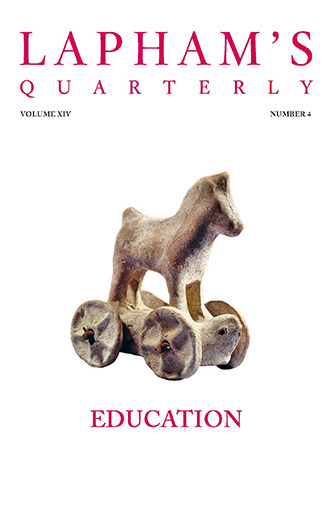There is no wonder that this country has so many charms and presents to Europeans so many temptations to remain in it. A traveler in Europe becomes a stranger as soon as he quits his own kingdom; but it is otherwise here.
We know, properly speaking, no strangers; this is every person’s country; the variety of our soils, situations, climates, governments, and produce has something which must please everybody. No sooner does a European arrive, no matter of what condition, than his eyes are opened upon the fair prospect; he hears his language spoken, he retraces many of his own country manners, he perpetually hears the names of families and towns with which he is acquainted; he sees happiness and prosperity in all places disseminated; he meets with hospitality, kindness, and plenty everywhere; he beholds hardly any poor; he seldom hears of punishments and executions; and he wonders at the elegance of our towns, those miracles of industry and freedom. When in England, he was a mere Englishman; here he stands on a larger portion of the globe, not less than its fourth part, and may see the productions of the north, in iron and naval stores; the provisions of Ireland, the grain of Egypt, the indigo, the rice, of China. He does not find, as in Europe, a crowded society, where every place is overstocked; he does not feel that perpetual collision of parties, that difficulty of beginning, that contention which oversets so many. There is room for everybody in America. A European, when he first arrives, seems limited in his intentions, as well as in his views; but he very suddenly alters his scale; two hundred miles formerly appeared a very great distance; it is now but a trifle; he no sooner breathes our air than he forms schemes and embarks in designs he never would have thought of in his own country. There the plenitude of society confines many useful ideas and often extinguishes the most laudable schemes which here ripen into maturity. Thus Europeans become Americans.
From Letters from an American Farmer. Born in Normandy in 1735, Crèvecoeur was a cartographer for the French militia in Canada during the French and Indian War. He remained in the American colonies, working as a surveyor and farming in the Hudson Valley, until the Revolutionary War, when his neutrality provoked such suspicion among his neighbors that he left for Europe. Two years later, in 1782, he published this collection of twelve essays to wide acclaim.
Back to Issue


